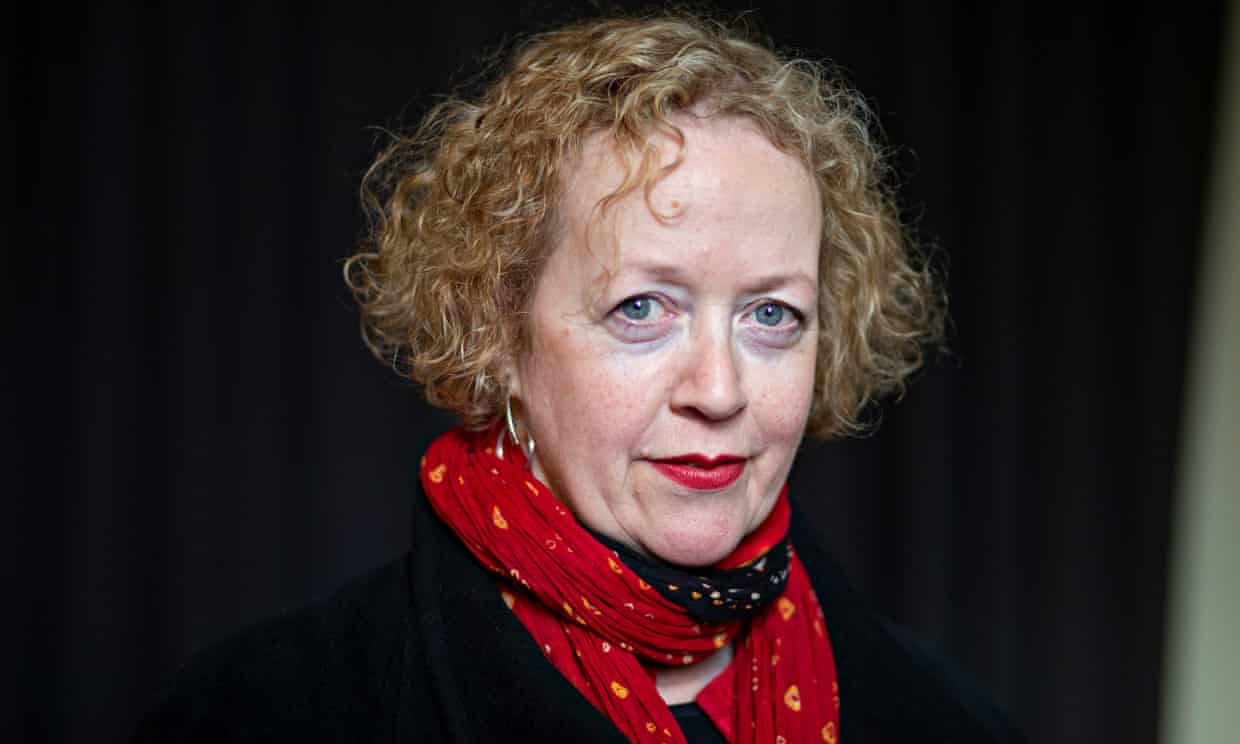
Book prize judge alleges co-jurors did not finish reading shortlist
by Alison FloodLesley McDowell was one of five judges for the Saltire Scottish fiction book of the year, but claims gender bias slanted decision against Lucy Ellmann
A judge of one of Scotland’s most prestigious literary awards has resigned over its choice of winner, claiming that her fellow judges had not read all of the books, and selected a book by a male author about a woman over three books by women about women.
The Saltire Society literary awards gave out a host of prizes at the National Museum of Scotland last weekend. The Scottish fiction book of the year went to Ewan Morrison for his novel Nina X, described by judges as a “great feat of imagination, showing digital modernity through the eyes of a young woman emerging from a lifetime within the confines of a Maoist commune”.
But Lesley McDowell, who was one of five judges for the fiction award, revealed her resignation in the Scotsman on Monday. She had pushed for Lucy Ellmann’s Booker-shortlisted Ducks, Newburyport – which took the Goldsmiths prize last month, acclaimed as “a masterpiece” – and said she had been backed by one other judge. But according to McDowell, two of the three judges against Ellmann winning admitted they hadn’t finished the 1,000-page novel – a statement that has been strongly contested by the Saltire Society. Eventually, Morrison’s novel was chosen by a vote of three to two.
“At this point, I said I couldn’t support the choice because it was a woman written by a man, when there were three women who’d written women on the shortlist and that meant they were saying a man had written a woman better than these three,” McDowell told the Guardian.
“I said they had to be very sure that their choice stood up against all of that, and that because I did not think it did, therefore couldn’t support it,” she said.
In a judging meeting, she cited research by the author Nicola Griffith, which found that books about women by women were least likely to win literary awards, and to VIDA’s annual analysis of critical culture, which consistently shows male authors are more likely to be reviewed.
“I was asked if I would never vote for a man, and so had to explain that of course men can and should write women. My own husband’s last book was a woman’s point of view, and half of my last one was from a man’s. But in these circumstances, gender choice matters,” said McDowell. “Every year the Women’s prize has to answer the same question, why do we need a prize for women? Well, the answer was right in this meeting. A woman was being overlooked, her book not even finished.”
Ellmann herself told the Observer on Sunday that there was “a tinge of sexism in certain male reviewers’ comments on the book’s length … They’re probably further miffed that it’s a novel about womanhood. The feeling is, how dare a woman, the narrator or the author, take up so much of my time?” she said.
McDowell said that none of the Saltire’s fiction panel had read all of the shortlisted titles in their entirety. One of the shortlisted books, Ruairidh MacIlleathain’s Còig Duilleagan na Seamraig, is in Gaelic, but only one of the judges speaks Gaelic. The shortlist also included Bird Summons by Leila Aboulela, You Will Be Safe Here by Damian Barr and Tiger by Polly Clark. McDowell said she asked Saltire to remove her name from the prize.
Ellmann’s publisher, Sam Jordison at Galley Beggar Press, described the situation as “an awful mess”, adding that “it does feel like lightning striking twice for Ducks”. Jordison wrote at length in the Times Literary Supplement criticising the Booker judges’ decision to choose two winners this year, neither of whom were Ellmann.
“It’s fine not to win when procedures have been followed properly and reasonably. But when they haven’t, it feels unjust,” he said.
He said he admired McDowell’s decision to go public. “It can’t have been easy, but there has to be accountability when these things go wrong and we need truth-tellers like her. I’m still hopeful someone will tell us what the hell happened with the Booker and she’s setting a brave example,” he said.
The judging panel for the Saltire prize also included Rosemary Ward, director of programmes at the Scottish Book Trust, Ali Bowden, director of Edinburgh Unesco City of Literature Trust, poet Ken Cockburn and reviewer Alasdair McKillop.
Speaking on behalf of the prize, Sarah Mason said: “The Saltire Society and the judges of the fiction award reaffirm that all judges carefully examined all texts submitted for the award. The judges were selected based on their expertise, knowledge and integrity and stand by their decision to award the prize to Nina X. Although only one panel member is a Gaelic speaker all Gaelic books are put to further scrutiny by an independent panel and fully evaluated.”